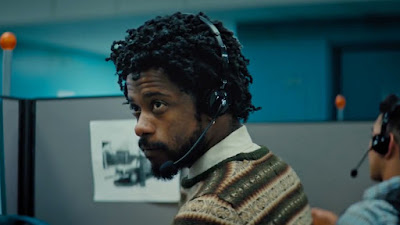Everyone's got an actor that they seem to enjoy on-screen but others tend to dislike. Perhaps we just cling to the few good roles that they've had and excuse the rest of their garbage. Or maybe it's part of our idiosyncrasy. To me, I've felt that Melissa McCarthy has been that actor. It feels to me like she's in a similar position as Adam Sandler: loved by the industry, but despised by the public for participating in comedies that aren't even worth the dignity of the dollar bin. Barring the touchy subject of the Ghostbusters remake, she has gotten the reputation as overly reliant on simple slapstick humor and being seen as just loud and obnoxious. However, I happen to believe that she does well with the crass and brash character type, being able to hone in her strengths and mold them into whatever role she's put into. Think of it like how Jack Nicholson uses anger, or how Nicolas Cage uses his batshit insanity. She might not be on par with them, but she can offer more than just pratfalls.
Of course, if one wants to see what a comedic actor is truly made of, they always have to look to the dramas, and Can You Ever Forgive Me? looked to be the one that would bring Melissa's acting credibility up a notch. Based on Lee Israel's eponymous memoir, Melissa stars as the author, struggling to make ends meet as she's a minor name in the literary world. Her latest work on Estée Lauder hardly garnered any attention and her agent Marjorie (Jane Curtin) is hardly helping her out. As she does research for her next book, she comes up with the idea to forge letters from Noël Coward, Dorothy Parker, William Faulkner and many more. She works with her friend Jack Hock (Richard E. Grant) to sell the forgeries and begins to befriend a local bookstore owner, Anna (Dolly Wells), to whom she sells her letters to along with many others.
Marjorie makes a point that the reason that Lee doesn't have the same level of fame as Tom Clancy is that the subjects that she writes about aren't "sexy". To some effect one could say the same about the film's concept. Forgery isn't exactly the most exciting crime to tackle. Marielle Heller understands this concern and manages to do an excellent job of elevating the entire experience. From the montage of forging and selling letters to the camera closing in and appearing from unconventional angles when the tension builds, the scheme takes on a more glamorous appearance. It does well to punctuate the emotion in a scene and maintain the attention of those that might not initially be intrigued by the premise. Peppered in the dialogue are an assortment of witty moments (mostly coming from interactions between Lee and Jack) and a seemingly romantic relationship brewing with Lee and Anna that add to the film's richness.
Without a doubt, Melissa McCarthy does a spectacular job in the lead role. As mentioned before, the aggressive and blunt personality that comes through in many of her roles is prominently on display. Lee Israel is portrayed as sophisticatedly uncouth, as she is both knowledgeable of figures in high society and is a foul-mouthed alcoholic. Her sensitivity comes through as much as her toughness as she is relatively vulnerable given her situation. McCarthy has found herself in roles that try to justify her hard-shelled nature as merely a protection mechanism to the harsh criticisms of the outside world, but Can You Ever Forgive Me? is where it expands beyond the need for subversion of her usual schtick. She is able to properly deliver the warts and all of how Lee conducted herself, and she does well to make sure that the audience gives a shit.
Strangely, this biopic manages to feel a lot more proper, in that one can sense how it truly is a novel adaptation. Though many biopics offer the third person limited perspective in which the narrative is clearly told from the perspective of the main character, Can You Ever Forgive Me? approaches it in such a masterful way that it captures the thrill of a great page turner. Narration is strictly left to the writing Lee does within the film, details about characters and Lee's understanding of them are integrated subtly and superbly, and the pacing is so steady and organically done that no moment feels unwelcome. The last point is particularly impressive given that the film surprisingly does not dwell too much on taking breathers. At times this can catch one off-guard but it hardly feels unnatural.



















